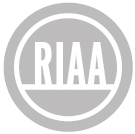 The Recording Industry Association of America (RIAA) has continued its fight against music file sharing by filing another 750 "John Doe" lawsuits against individuals Cary Sherman would describe as "songlifters". There was a drop of CD sales in the United States as well as worldwide in 2005, and once again file sharing has taken a large portion of the blame from major music labels. However, there is still no solid evidence that these lawsuits are working.
The Recording Industry Association of America (RIAA) has continued its fight against music file sharing by filing another 750 "John Doe" lawsuits against individuals Cary Sherman would describe as "songlifters". There was a drop of CD sales in the United States as well as worldwide in 2005, and once again file sharing has taken a large portion of the blame from major music labels. However, there is still no solid evidence that these lawsuits are working.
"While the music companies continue to innovate and develop new digital ways to offer music to fans, we will do our part to hold illegal downloaders accountable. Prosecuting songlifting is integral to helping protect the ability of record companies to invest in the up-and-coming bands of tomorrow and level the playing field for legal online services," said Cary Sherman, President, RIAA. "The illegal downloading of music is just as wrong as shoplifting from a local store. It's against the law, and breaking the law must carry consequences."
The most likely explanation is not that Mr. Sherman just doesn't have a clue how P2P even works, but that he's selectively picking the word "downloaders" instead to scare casual P2P users or deter possible new users. In order to get caught in an RIAA lawsuit, you would probably have to be connected to a network constantly with a lot of files available for upload. Some P2P users however, might only connect for 5 minutes to download 2 or 3 songs at a time, and may never upload.
You also have to take into account that P2P is not the only place on the Internet where you can easily get music for free. Saying "music downloaders" instead of "music uploaders" would probably grab the attention of parents who know their kids get their music for free online. Since 2003 however, when the lawsuits started, even the selective wording doesn't seem to be scaring many people off.
Source:
Slyck














